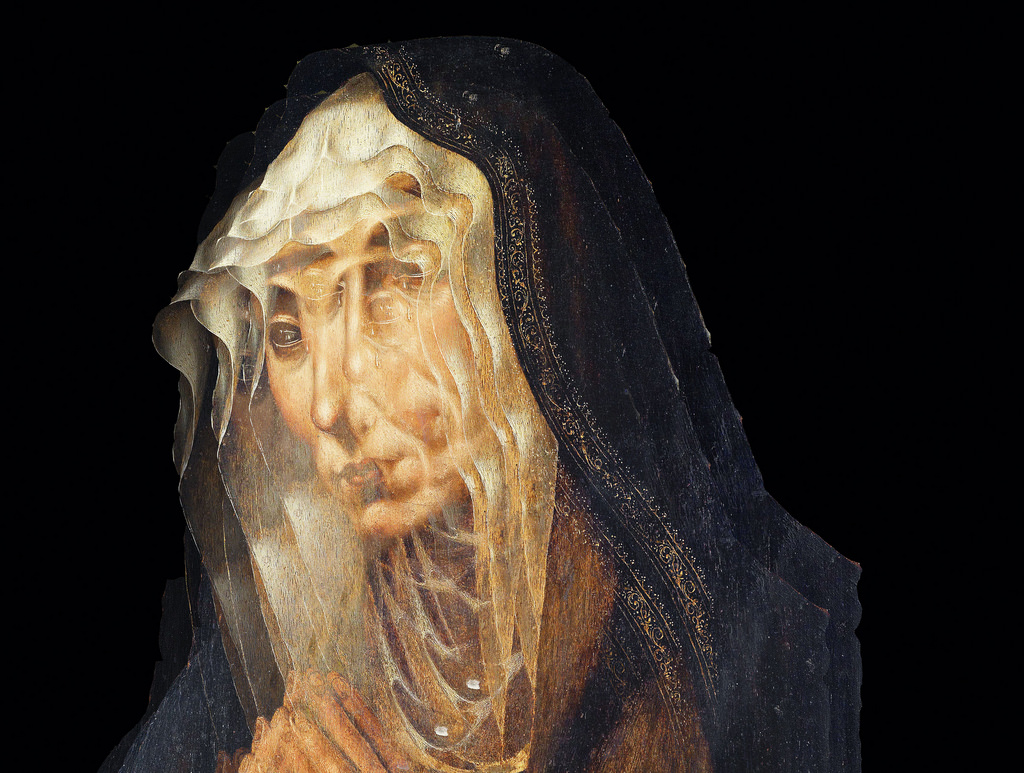
Oxford Movements – Duns Scotus Lives and is Still Doctor Subtilis
by Ian Bradley | December 16, 2014
For the home of lost causes, Oxford has a pretty impressive record of “live” ones. Its name has been associated with ultra-Royalism in the 17th Century, High Church revival in the 19th, the moral-rearmament movement and the campaign against world poverty in the 20th and the dominant contemporary British school of philosophy. There is a certain similarity between these movements – and it has nothing to do with the proximity of dreaming spires or the damp atmosphere. Somehow a particular outlook seems to have become established here and we’ve never quite been able to escape from it since it hit us in the 13th Century.
It does not follow that this can be demonstrated . . . but we hold it by faith.
William of Occam, Oxford Franciscan School, 1312-1318
The first “Oxford Movement” shattered the Age of synthesis established by Aquinas’ neat blending of reason and revelation. Throughout the 13th Century the University had busied itself in scholasticism with its happy combination of classical philosophy and Christianity. The harmony was shattered at Oxford and the lace has never quite recovered from the effects. Duns Scotus, and his best pupil, William of Occam, divorced theology from philosophy and forged the paradoxical alliance of faith and scepticism which has been the constant background to Oxford thought.
Scotus, who came to the Oxford Franciscan community at the end of the 13th Century, was the last and perhaps the greatest exponent of scholasticism. By painstaking argument and immense subtlety he destroyed the synthesis of reason and faith, exalting the all-powerful will and purpose of God and limiting the scope of man’s reasoning. God was made inaccessible to man – his existence could only be explained in terms of mode of being and elaborate theories of abstractions and essences were evolved by Scotus in an attempt to reach a new harmony. But his subtlety over-reached itself and the whole scholastic tradition of which he had been both prime exponent and destroyer crashed down around him.
William of Occam reacted against the methods of his tutor, but in a way he only extended Scotus’ ideas. The limitation of reason was taken further; it was of no use at all in establishing God’s existence. Even Scotus’ essences and beliefs were rejected: only by faith could such notions be held. God was utterly unknowable and theology quite beyond the reach of man’s reason. Man could not escape from the reality of His power which was manifest in all, but it was impossible and utterly pointless to discuss such matters. Knowledge involved direct awareness of an object – only the individual things could be said to be real; all else was mere speculation. Occam preached nominalism: nothing could be proved except what was clearly seen. Scepticism replaced scholasticism.
He lives; on these weeds and waters, these walls are what He haunted who of all men most sways my spirits to peace.
Gerard Manley Hopkins on Duns Scotus, Oxford Fransiscan School, c. 1301
The attitude of Scotus and Occam has persisted in Oxford, and it explains the paradox of the Oxford movement. On the one hand all is relative; generalisation, theories, synthesis are invalid – only certain and incontrovertible proof establishes a truth. But at the same time there is an area beyond the reach of human understanding, an area not to be speculated on or discussed over, a matter for faith. Theology, detached completely from philosophy, became a matter of absolute dogma and unquestioning belief. Orthodoxy was essential and the authoritarianism that it inspired spilled over into other spheres – Occam believed in the Divine right to rule and the absolute power of the Godly Prince.
The uneasy alliance of absolute faith and utter scepticism was cemented by opposition to a mutual enemy – reason. Reason claimed to formulate concepts and generalisations; it was applied to metaphysical beings and used to prove or disprove religious beliefs. Oxford hated it. Oxford could be severely practical or wildly ethereal, it has very seldom been philosophic or rational: even the Oxford Philosophy School proclaimed itself as a movement against philosophy.
To believe only possibilities is not faith, but merely philosophy.
Sir Thomas Browne, Pembroke College, 1623-1627
Faith – and its utter unassailability by reason – has been a powerful force in all Oxford movements. It was faith which made the City and University the home of Royalism in the 17th Century. When Oxford fell to the Parliamentarians “loyalty and ye Church fainted, lay down and died”. In attachment to the Stuart cause and to the Divine Right of kings, Oxford found an outlet for its authoritarian leanings. If found it again in the Oxford Movement, the profoundly conservative and clerical attempt to restore the full authority of the Medieval episcopate, stressing the Apostolic Succession and rejecting Thomism. And it was the predilection for authority and faith which inspired so many to support Buchman’s Oxford Group in the 1920s. Here was strong simple faith in the four absolutes of honesty, love, purity and the unselfishness. Faith and authority have been essential characteristics of Oxford inspired movements – no wonder that Hitler wanted the city for his English capital.
I recollect an acquaintance saying to me that the Oriel Common Room stank of Logic.
John Henry Newman, Fellow of Oriel, 1822-1845
The sweet light of reason has never been welcome at Oxford, the Enlightenment came to Britain through Cambridge Platonists and Scottish philosophers while Oxford men remained firmly in the Middle ages and echoed the sentiments of Wilmot. Locke wrote his philosophical works only after he had escaped from his tutorship at Christ Church and the sentiments of his Reasonableness of Christianity could hardly ever have been more alien to Oxford, which has seen no reasonableness in Christianity since Scotus’ day. It is significant that the “new theology” has remarkable few devotees here, that John Robinson has gone from the diocese of Woolwich to be head of a Cambridge Collge, and that we still have a Professor of Dogmatic Theology. Suspicion of reason has also meant contempt for all general theories and concepts. As Bertrand Russell said “the Oxford Abecedarians do not reject all human learning, but only such as is not required for a first in Greats, i.e. such as has been discovered since the time of Erasmus”. And one only has to look at the way that our present Regius Professor treated Toynbee’s Study of History to see that things haven’t hanged.
Reason, an ignius fatuus of the mind.
John Wilmot, Earl of Rochester, Wadham, 1660-1661
The suspicion of reason and consequent mistrust of the whole philosophic method has sent Oxford movements in two directions. One is the resort to mysticism or eccentricity, the ultimate protest against rationality. The heavy ritual of the Oxford Movement with its stress on the mystical body and mysterious presence of Christ, and the intense spirituality and individualism of Gerard Manley Hopkins’ poetry both symbolise this flight from reason. It is no wonder that Hopkins idolised Duns Scotus, from whose “principle of individuation” and theory of “thisness” he drew his own philosophy of inscape and in stress. Hopkins’ work is perhaps the nearest representation in art of one side of the Oxford attitude. The other side, the scepticism and sense of futility engendered by Occamist nominalism, is represented by Oscar Wilde and Max Beerbohm. Triviality and the cult of the eccentric spring from the same basic dislike of reason that inspired the great faith of Newman and Hopkins. Lewis Carroll epitomised this side of the Oxford attitude with his utter irrationality. Was “You might just as well say that I see what I eat is the same as I eat what I see” the first assertion of the linguistic school? The movements that Oxford has inspired have not all been flippant or trivial, but they have never been earnestly rational.
One gains nothing by sitting still. I am sure the Apostles did not sit still.
John Henry Newman
The other effect of Oxford’s dislike of speculation and philosophising has been to incline it towards the practical. From the time when Occam incited men to employ their minds on what they might hope to understand and investigate physical sand scientific phenomena, Oxford has stressed action. Comparatively little political philosophy has come out of the place (it smacks too much of using reason to penetrate mysteries of state) but vast numbers of politicians have. Christian Action, born of the frustration of John Collins and his friends at Oriel with sitting round and talking about the needs of the post-war world, and Oxfam, the creation conscience-stricken dons, are most recent examples of Oxford’s concern with the practical. Even now, while Cambridge amasses more and more research institutions, Oxford accurately sends more people out into the world. The most famous Oxford men are statesmen and Empire builders, not philosophers.
I suppose present-day Oxford philosophy is gentlemanly in that sense – it takes nothing seriously.
Bertrand Russell
It was inevitable that Oxford’s own philosophical school should dedicate itself to the rehabilitation of common sense and the euthanasia of philosophy. Avoiding all the “big” philosophical questions about the Universe and the meaning of life, the Oxford Linguistic School took up Wittgenstein’s “battle against the bewitchment of our intelligence by means of language”. The precise meaning of words became all-important, nothing else counted. Echoing Occam, the Oxford schools held that all questions that could not be resolved into linguistic simplicity were out of reach of philosophy. So, according to its greatest critic, Ernest Gellner, it became concerned only with “impressionistic lexicography”. Ultimate scepticism was reached: everything it what it is – beyond this one could not go. Philosophers had no guidance to offer to the world – they could advance no theories or generalisations at all – the contempt for reason that had begun with Scotus had finally been pushed to its logical extent. In its early days, linguistic philosophy perfectly summed up by the Oxford attitude. It was utterly sceptical – any statement that cannot be verified by sense experience is meaningless, proclaimed Ayer’s logical positivism. No general theories or concepts could be taken seriously- you could laugh at them all. The Oxford philosophers became more and more concerned with the trivialities and niceties of word meanings. And in the midst of this stood the great act of faith: Wittgenstein’s Tracatus proclaimed that there was one proper language game that resolved all difficulties. Play it, and you have found truth. Gellner compared this ultimate subordination of reason to faith to methods off scholastics: “We smile at scholastics having to reach by reasoning conclusions prescribed by Revelation: but linguistic philosophers similarly have to reach conclusions predetermined by the Oxford English Dictionary… which replaces exegesis of a creed or of the classics”
But the most recent of the Oxford movements was to break away from the most fundamental characteristic of its predecessors. Wittgenstein had second thoughts and his Investigations denied the existence of any perfect language game. For the first time there was a movement without a faith. But worse was till to come: Oxford philosophers are now concerning themselves with those metaphysical and moral problems that have been shunned for over 600 years – they are even trying to apply reason to the mysteries of life. Have we at last actually escaped from the grip of that subtle doctor and his clever little pupil?




